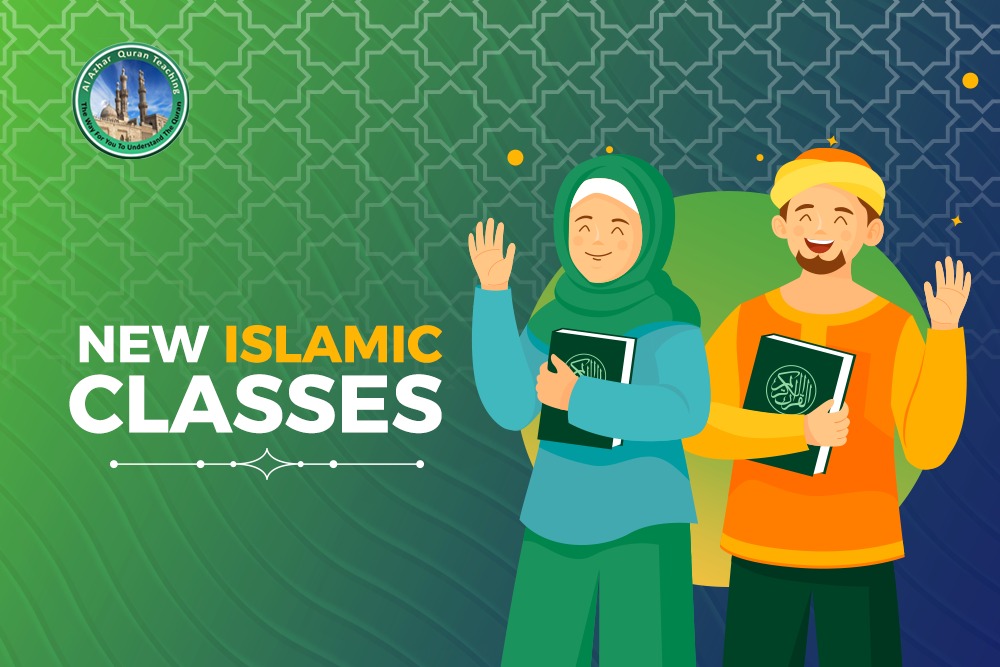New Islamic classes are a valuable resource for individuals seeking to learn more about Islam and its teachings. These classes are designed to provide a comprehensive and structured approach to learning about the religion, with a focus on English as a Second Language (ESL) for those who may not be fluent in Arabic.
The curriculum of these classes typically includes the basics of Islam, such as the five pillars, the Quran, Hadith, Fiqh (Islamic Jurisprudence), and the Arabic language. These classes can be held both in-person and online, making them accessible to a wide range of individuals, including beginners and advanced learners, adults, and children. The goal of these classes is to provide an inclusive and supportive environment for individuals to learn about Islam and its teachings, and to foster a deeper understanding and appreciation of the religion and the Muslim community.
Teaching Islam for new Muslims:
Teaching Islam to new Muslims is a critical responsibility for the Muslim community, and it requires a thoughtful and tailored approach. New Muslims come from a variety of backgrounds and experiences, and it is essential to create a welcoming and supportive environment that meets their individual needs and requirements. The teachings should be delivered with sensitivity and empathy, recognizing that new Muslims may have questions or concerns that require special attention. The first step in teaching Islam to new Muslims is to cover the basics of the faith.
This includes the five pillars of Islam, which are the declaration of faith (Shahada), prayer (Salah), charity (Zakah), fasting during Ramadan (Sawm), and the pilgrimage to Mecca (Hajj). These pillars are the foundation of Islam and provide a framework for understanding the religion’s beliefs and practices. In addition to the five pillars, new Muslims should also be introduced to the Quran and Hadith. The Quran is the holy book of Islam and contains the word of Allah (SWT), while the Hadith is a collection of sayings and actions of the Prophet Muhammad (PBUH). Understanding these texts is crucial for developing a deeper appreciation of Islam’s teachings and beliefs.
It is also important to teach new Muslims about the broader Muslim community and the Islamic culture. This includes an introduction to Islamic history, the role of the mosque, and the significance of Islamic holidays such as Eid al-Fitr and Eid al-Adha. By learning about the broader Muslim community, new Muslims can connect with their fellow believers and understand the diversity of Islamic cultures and traditions. When teaching Islam to new Muslims, it is important to use clear and concise language to explain concepts and practices.
Many new Muslims may not be fluent in Arabic, so it is essential to use English as a Second Language (ESL) to ensure that they understand the teachings and feel comfortable asking questions. Visual aids such as diagrams and charts can also be helpful in reinforcing concepts and making the teachings more accessible. It is also important to provide opportunities for new Muslims to practice their faith and develop a sense of community. This can be achieved through regular prayer services, Quran study groups, and social events that bring the Muslim community together.
These activities can help new Muslims feel supported and connected to their faith and provide opportunities for them to learn from more experienced Muslims. Ultimately, the goal of teaching Islam to new Muslims is to help them develop a strong and meaningful relationship with Allah (SWT) and become active members of the Muslim community. By providing a supportive and inclusive environment, tailored teachings, and opportunities for practice and community engagement, new Muslims can develop a deep appreciation for Islam’s teachings and values. The Muslim community plays a critical role in supporting new Muslims on their journey of faith, and by doing so, can help build a stronger and more vibrant community.
New Islamic classes:
New Islamic classes are designed to provide a structured and comprehensive approach to learning about Islam and its teachings. These classes are tailored to individuals who may not be fluent in Arabic, with a focus on English as a Second Language (ESL) to ensure that learners can understand the teachings and concepts with ease. The curriculum typically covers the basics of Islam, such as the five pillars, the Quran, Hadith, Fiqh (Islamic Jurisprudence), and the Arabic language. The classes can be held both in-person and online, making them accessible to a wide range of individuals, including beginners and advanced learners, adults, and children. The classes are taught by experienced and knowledgeable teachers who provide a supportive and inclusive environment, encouraging learners to ask questions and engage with the teachings. By participating in new Islamic classes, individuals can deepen their understanding and appreciation of Islam’s teachings and develop a stronger connection with the Muslim community.
Conclusion:
In conclusion, new Islamic classes are a valuable resource for individuals seeking to learn about Islam and its teachings. These classes provide a structured and comprehensive approach to learning, with a focus on English as a Second Language (ESL), making them accessible to individuals who may not be fluent in Arabic. The curriculum typically covers the basics of Islam, including the five pillars, the Quran, Hadith, Fiqh (Islamic Jurisprudence), and the Arabic language. The classes are taught by experienced and knowledgeable teachers who provide a supportive and inclusive environment, encouraging learners to ask questions and engage with the teachings. Whether held in-person or online, new Islamic classes offer a valuable opportunity for individuals to deepen their understanding and appreciation of Islam’s teachings and develop a stronger connection with the Muslim community. By participating in new Islamic classes, individuals can develop a deeper sense of faith and community and contribute to building a stronger and more vibrant Muslim community.
Register Now
